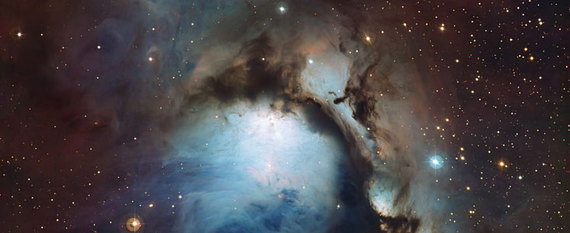When I went to graduate school in the U.S. to study art, I heard about courses such as "Art Appreciation", which was mainly taken by undergraduate students from different backgrounds and different majors. At the time this seemed a bit weird as I thought that it wasn't quite possible to learn to appreciate art; I assumed one can either love art or not, and it all comes naturally. I had such thoughts, partially, because I just loved art myself, and no one really taught me to like or appreciate it. I didn't take that class and continued thinking about it as something redundant. Until the moment I met people who were science majors and absolutely loved science.
Encountering such people made me get out of my 'box' and look at things differently. I realized that we perceive the world via our own experiences and somehow expect other people to look at the world the way we do. But it's impossible since everyone's experience is so unique. My new friends were not so excited about art in general and told me that, in fact, they didn't understand much about art and thought of it as something unimportant. That was the point when I realized that it does make sense to have a subject like "Art Appreciation" that will help people understand and, thus, appreciate art more.
Then I paused for a moment and thought about my attitude towards the science. When one of my friends offered to take me to a class in statistics as a selective course, I said it would be the last course that I would ever take as I don't have any natural predisposition to science. My friend told me it was a fun course, but for me, it seemed terrifying. I thought that we have a division between sciences and humanities for a reason, and I was definitely into humanities. Somehow I had convinced myself that I wasn't talented at understanding science. Maybe because I thought of science as something very boring, something that lacks creativity, something that involves big formulas you have to memorize, etc. - and it all scared me too much.
I slowly started changing my mind after talking more and more to my friends who showed me a different side of science, the science that can be fun, that involves creativity, and that helps us understand the world around us. My stereotypes about boring scientists wearing glasses and mixing something in the lab quickly vanished. Then I thought I wished there had been such a class as "Science Appreciation" at the university, a class which would help us understand and really appreciate science.
I view science as something vital and fascinating now and, in fact, got really interested in reading about evolution and quantum physics (the movie about Stephen Hawking was quite inspirational). Such books and films about scientists now influence my art. Besides, I think that art and science are much more closely related than we think. For example, when we think about art forms such as movie making there is a lot of science involved, as it requires a good understanding of light, camera, sound recording, engineering, etc.
I believe that everything that happens in life happens for a reason, and I am thankful that I've met friends who have changed my attitude towards science, and whom, I believe, I influenced as well. Now I know that science is fascinating and fun and that it can be easy. Everyone can develop a love for it. Scientists are enjoyable and deep people who love giving unique gifts, have a great sense of humor, and are enormously interesting people to talk to; it's just important not to let stereotypes overpower you. So, if you're an artist, peek behind the curtain of science--and if you're a scientist, say hello to us, the artists.

